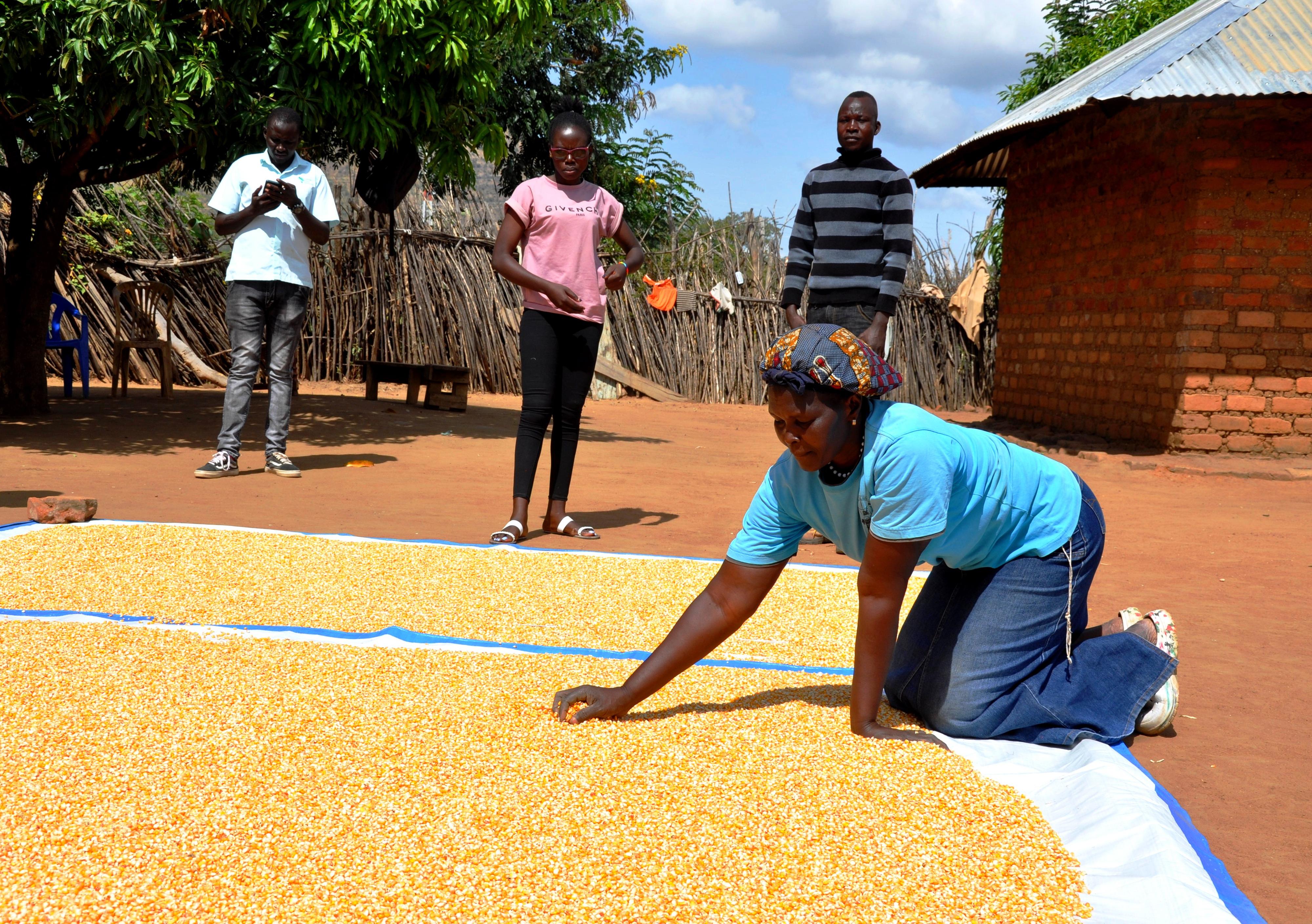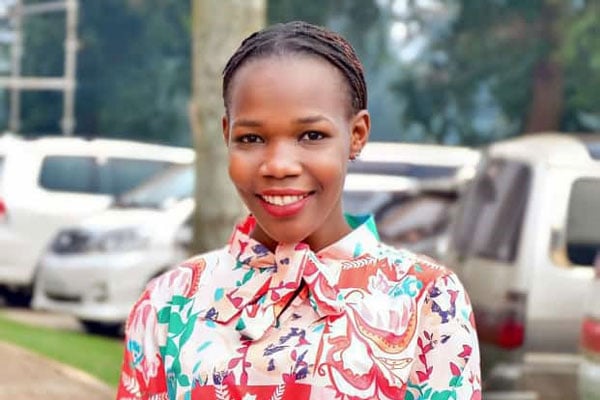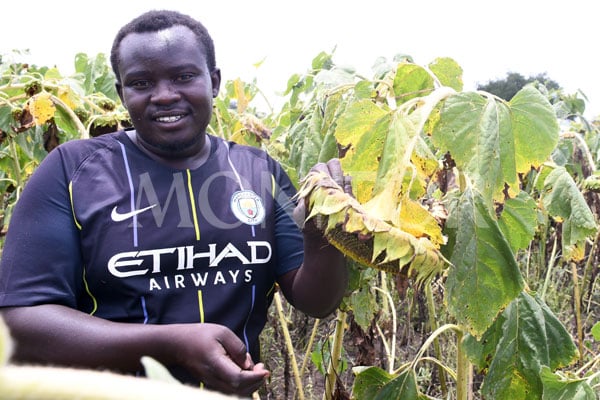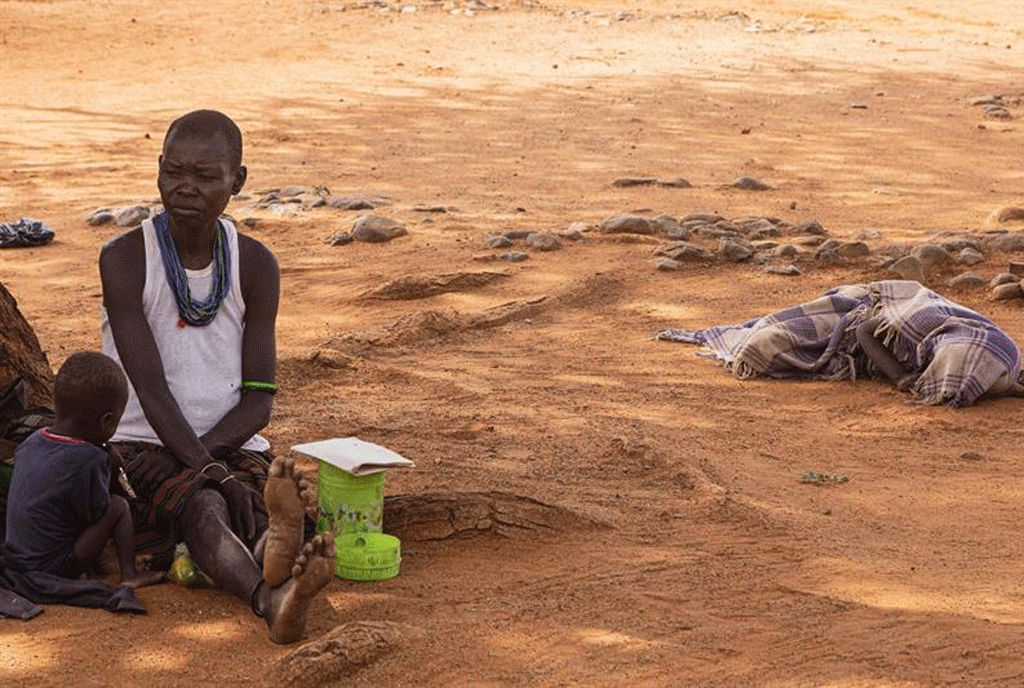Karamoja farmers embrace climate smart agriculture to combat food insecurity

Ms Vicky Ngorok, a farmer in Napak District spreads her maize on a tarpaulin to dry. Photos/ Courtesy
In a bid to address the challenges of famine and hunger, farmers in the restive mineral-rich Karamoja Sub-region have embraced climate smart agriculture, a programme that aids farmers in drought prone areas to continue with farming activities even in dry seasons.
This follows an initiative carried out by Sasakawa Africa Association (SAA), an organization that supports smallholder farmers along the agricultural value chain in partnership with World Food Programme (WFP), to support farmers in regions affected by climate change such as drought, floods among others.
Ms Vicky Ngorok, a farmer from Iriri Sub County in Napak District told our reporter during a media tour that the initiative has helped her to have enough food to feed her family. The farmers in the region are provided with maize seeds, potato vines and bean seeds either freely or at a subsidized cost and these can bear the drought in the areas.
“There are new crop varieties from SAA like the orange fleshed maize which are rich in vitamin A which is healthy for both the adults and children and I encourage my fellow community members to engage in farming other than waiting for relief food from government and WFP,’’ she said.

Silos, one of the equipments farmers in Karamoja use to store their crop harvests so as to keep them fresh and out of pests for a very long time
"One of the challenges we face is limited market for us who want to sell some of the foodstuffs. For example last year, World Food Programme didn’t buy our produce but this was mainly because they were of low quality so if you want to ensure that your foodstuff gets market ensure quality right from the seeds you plant to how you handle your harvest,'' Ms Ngorok added.
Mr Benson Ogwal, another beneficiary from the initiative also advised other members of the community to engage in farming as the only way of fighting hunger.
However, he called on the government to also support the farmers by reducing taxes on the farm inputs, something that will motivate them since high taxes on farm equipment scares most of the community members from engaging in smart climate agriculture.
“Farmers use equipment such as sprinklers for irrigation but these are quite expensive and not affordable to most farmers, the government should cut taxes on them so that we are able to afford and engage in agriculture,” Mr Ogwal said.
Ms Christine Kyomugisha, the SAA programme officer for regenerative agriculture said their main aim is to increase farmers’ income, food productivity, food nutrition and food security through promoting market-oriented, sustainable, resilient and agricultural innovations.
“We are teaching farmers to practice regenerative agriculture because the climate is changing. There is a lot of soil degradation and other damages as impacts of climate change so we aim at teaching farmers to practice agriculture that is friendly to the environment,” Ms Kyomugisha said.





